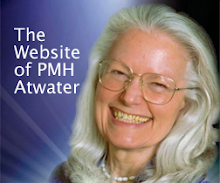Ian P. Stevenson, M.D.
Ian P. Stevenson, M.D. passed away from pneumonia on February 8, 2007. Childless, he leaves behind his widow and numerous younger colleagues that he has inspired to continue research on the afterlife and on reincarnation. Author of many books on the subject, his most extensive is the 1997 "Reincarnation and Biology: A Contribution to the Etiology of Birthmarks and Birth Defects."
Ian traveled six continents, often logging 50,000 plus miles annually during almost five decades, as he accumulated over 2,500 case histories in Asian and Western cultures, usually of young children who recounted details of previous lives. With diligent persistence and the assistance of many local interpreters and colleagues, he meticulously verified the children's accounts with witnesses, often in locations they had never previously visited or that were unknown by the child or his or her family. Hospital records, autopsy reports, death certificates, and photographs also supported many of his findings. He and his colleagues and collaborators have published their findings in over 300 publications including 14 books.
He was a founding member of the Society for Scientific Exploration as well as its "Journal of Scientific Exploration." Although often shunned by colleagues, he observed that "It's been said that there's nothing so troublesome as a new idea and I think that's particularly true in science." He was especially distressed by fellow scientists who denigrated his work without taking the trouble to examine the evidence he presented.
It can be said that no one else in the world has yet to match Ian's record of accomplishment, nor of his thoroughness in tracing down every possible lead and explanation for what he found. He leaves behind a body of work that is so stunning in its implications, so meticulous in its evidential strength and vigor, that it truly supports and validates the existence of an afterlife and the continuance of life itself from form to form, while seriously challenging any other interpretation one might have of the work he did.
I consider it a privilege to have known Ian and to have spent several sessions with him. I admired him greatly; and, even though hard-pressed of late to continue, I am pleased to say his department at the University of Virginia is still alive and well. PMH
Labels: afterlife, Ian P. Stevenson, Memorial, obit, reincarnation


0 Comments:
Post a Comment
<< Home